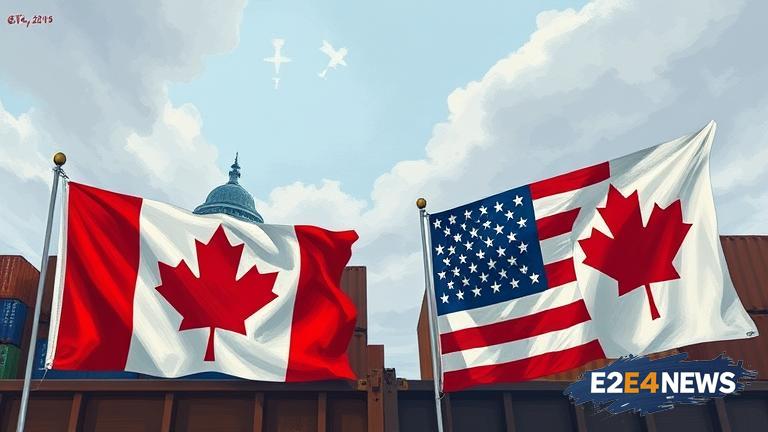As the deadline for a trade deal between Canada and the US draws near, many are left wondering if a successful agreement can be reached under the Trump administration. The relationship between the two countries has been strained in recent months, with tensions rising over issues such as tariffs and trade policies. Despite efforts to negotiate a new deal, the outcome remains uncertain. The US has been pushing for significant changes to the existing trade agreement, including increased access to Canada’s dairy market and stricter intellectual property protections. However, Canada has been resistant to these demands, citing concerns over the potential impact on its domestic industries. The Canadian government has also been seeking greater clarity on the US’s intentions regarding tariffs, which have been a major point of contention in the negotiations. With the deadline looming, there are fears that a failure to reach a deal could have significant economic consequences for both countries. The US is Canada’s largest trading partner, and a disruption to trade flows could have a major impact on the Canadian economy. Many businesses and industries are already preparing for the worst, with some implementing contingency plans in the event of a no-deal scenario. The uncertainty surrounding the trade talks has also had a significant impact on the Canadian dollar, which has been volatile in recent weeks. The Canadian government has been working to diversify its trade relationships, including negotiating new agreements with other countries such as the EU and China. However, these efforts are still in their early stages, and it remains unclear whether they will be enough to offset the potential losses from a failed US trade deal. The Trump administration has been known for its unpredictable approach to trade policy, and many are questioning whether the US is truly committed to reaching a deal. The US has already imposed significant tariffs on Canadian goods, including steel and aluminum, and there are fears that further tariffs could be imposed if a deal is not reached. The Canadian government has been seeking support from other countries, including the EU and Mexico, in its efforts to resist US trade demands. However, it remains unclear whether this support will be enough to sway the US position. As the deadline approaches, many are bracing themselves for the worst, with some predicting that a failure to reach a deal could have significant and far-reaching consequences for the global economy. The Canadian government has been working to prepare for all possible outcomes, including a no-deal scenario. However, the uncertainty surrounding the trade talks has already had a significant impact on business confidence and investment in Canada. Many are calling for greater clarity and transparency from the US regarding its trade intentions, in order to reduce the uncertainty and allow businesses to plan for the future. The Canadian government has also been seeking to promote its trade agenda, including through the use of social media and other digital channels. Despite the challenges, many remain optimistic that a deal can still be reached, and that the two countries can work together to find a mutually beneficial solution. However, as the deadline looms, the uncertainty and unpredictability of the situation are causing significant concern for businesses and industries on both sides of the border.
